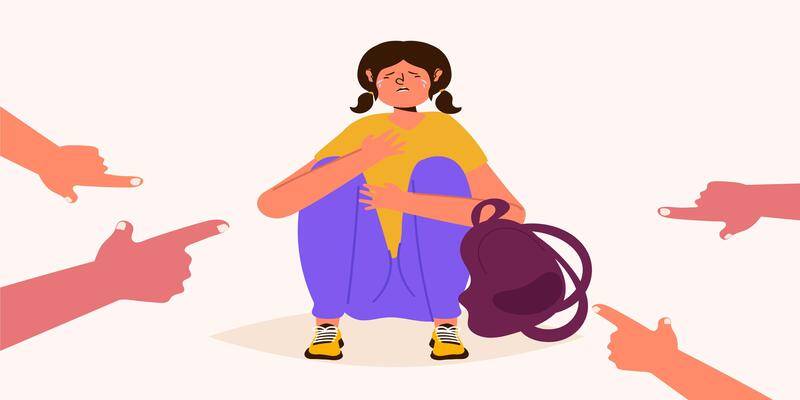Role of language in the subjugation of women

I was recently telling a friend about my boarding school experience when I told him that we used to have MODs or Mistresses on Duty who would look after that particular day’s affairs. On hearing this, he first sniggered and then shook his head. While it took me a while to figure out why, I eventually did — the word ‘mistress’ had triggered his sense of humour. Only a few years back, male teachers were also called ‘masters’ in most schools. The word ‘master’ is basically attached to a position of power… ‘master of the house’, ‘master of the game’, and so on. However, its female counterpart has a sexual connotation attached to it and can often be used in a derogatory manner.
But this isn’t a standalone example of language being sexist. In fact, language has played an important role in the subjugation of women by giving them a passive voice in the society — one of the reasons for it might be because it has been dominated by men and caters to their needs more particularly. If you think differently, let’s look at these points.
Mr, Miss, Mrs
As a ‘writer’, it took me a long time to identify myself with the word. Since I was a kid, I have seen this word being used predominantly for men. When we say writer, the image of a man with his nose buried in books or a laptop comes to mind, as if there are no women writers around; the fact that JK Rowling — she opted to abbreviate her name to not give away her identity and face prejudice — is one of the foremost and highest-grossing writers of our times makes little difference.
It should also be noted that a lot of “female” writers had to sacrifice their identity to get published in the first place. Jane Austen could not go by her real name, or publication houses and readers wouldn’t have taken her seriously. Mary Ann Evans or George Eliot chose a name that sounded gender-neutral so that her identity was never revealed and the literary world wouldn’t be harsh on her.
But that is just the tip of the iceberg; language needs to define a woman’s marital status too. A man is always a Mr. The prefix attached to his name doesn’t change after marriage, while a woman can’t exercise such liberties. She is first Miss and then Mrs., telling the world how her identity is attached to that of a man, sometimes even taking away her name and addressing her as someone’s Mrs., e.g., Mrs. Barack Obama — though Michelle Obama is a very strong and independent woman in her own right. In some South-Asian provinces, it is also okay and expected to change a woman’s name after marriage to complement the husband’s name. Of course, the fact that this might mean a woman losing her identity along with her birth name is taken into little consideration.
Abuse or not to abuse
Have you ever paid attention that most of the abuses used in English, Hindi, or even Cantonese refer to a woman’s body part or doing something to a woman in relation to the man? Why and how did it become so commonplace to abuse people in the context of the women in their families? Is it because the supposed honour of the family lies with a woman and should be protected? Even the most feminist of men that I know resort to such words when feeling agitated or even excited. And, a lot of women, without realising that they are becoming a part of the bigger problem of subjugation of women through language, participate in it without complaints. The issue might seem trivial, but by putting women in such a position, we are raising a generation that invariably participates in the orthodox gender norms.
Defining gender norms early on
The world is changing to become more inclusive, but we still have a long way to go about it. When people talk about the ‘fairer sex’, it is obvious that the point of discussion is women and womankind. But what exactly is fairer sex? Is it the Victorian idea of women being chaste and naïve and thus fairer, or is it a comment on women being more womanly? The same goes for using words like ‘chairman’.
Words, it has been found, help people visualise and thus expand their horizon. When using words like ‘chairman’, ‘policeman’, ‘businessman’, or ‘man-kind’ we create a gender-specific image even though a lot of women are currently heading businesses, taking important business decisions, and wearing the uniform. Similarly, words like ‘mid-wife’, ‘nurse’, and ‘air hostess’, (professions traditionally deemed as womanly or care-giving) don’t represent the gender-neutral job profiles they stand for. More often than not, people also feel the need to specify gender when using such words, e.g., ‘lady doctor’, ‘male nurse’, ‘chairwoman’, etc.
Content is king (or queen)
Whenever we use any generic sentence where the gender of the person is unknown, we go with ‘he’. This again showcases a patriarchal attitude that has been around for ages now and needs to change. If unsure, using a ‘they’ instead of ‘he’ might be a better and more inclusive way to go about things. Similarly, using mankind to represent the whole of humankind sounds unfair to women, who make up almost half of the population.
If we go by newspaper clippings or articles on the safety of women, we will realise that a lot of them put the onus on women through their language. It is usually “XYZ thing happened to a woman.” Often, these articles then also go on to describe what that woman was doing when the gendered crime occurred. However, the narrative doesn’t talk about the (often) men preparators in the same light, and they appear as obscure figures who happened to chance upon the women. And if, God forbid, the woman was drunk, outside late at night, and trusted people she shouldn’t have, the whole story takes a different angle. It is equally important to focus on that and bring the responsibility on men, especially when it is a crime committed basis the gender of the person.
Whether we like to admit it or not, equality is not going to come with us sitting at our homes and preaching about it while doing little to nothing to make changes on the ground. Be it everyday language, sexist stereotypes, or gender parity, women have been dealt the shorthand. It is easier to dismiss these issues by saying that ‘I am just one person, what can I do’ or ‘how do my actions affect the bigger unit of society’. But that is just our consciousness being lazy or refusing to take responsibility. Even one person can bring about tremendous changes if we set our heart to it.






